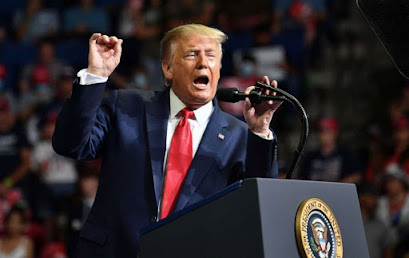Is the Gold Standard Reentering the Mainstream?
Yesterday, the Senate Banking Committee advanced the nomination of Judy Shelton, who is vying for a spot on the Federal Reserve Board of Governors. She is a lifelong supporter of the gold standard, perhaps more ardently so than any Fed candidate in recent memory, and I have written at length about her nomination.
Today, Michael Hsueh -- a Deutsche Bank research analyst -- declared that "fiat money will be a passing fad in the long-term history of money." Hsueh's full remarks, as quoted by FXStreet, are as follows:
Hsueh's comments, which decry the fiat/Ph.D. standard but reject gold as a good investment, bring to mind a lecture from Steve Levitt, the author of Freakonomics. Levitt remarked that those who buy gold are setting themselves up for failure because gold does not generate a return comparable to other investments. One may ask: Doesn't this repudiate the gold standard? The opposite is true: Money should be a stable intermediary that allows for the exchange of two things of value now and in perpetuity.
Gold also meets the two standards for money laid out by Murray Rothbard: coincidence of wants and divisibility. Everyone wants the utility and beauty of gold, hence its increase in price since 1971 despite the fact that it is no longer an official unit of money. And, as the sale of 1/20th-of-an-ounce coins and one-gram bars would show you, gold is eminently divisible.
The appeal of gold is obvious, but it has been on back burner since 1971. Between Shelton and Hsueh, perhaps we are in the midst of a monetary reawakening.
Today, Michael Hsueh -- a Deutsche Bank research analyst -- declared that "fiat money will be a passing fad in the long-term history of money." Hsueh's full remarks, as quoted by FXStreet, are as follows:
Although I’m a gold bug since I think fiat money will be a passing fad in the long-term history of money, in my long-term work I’ve always found many commodities difficult to recommend on a buy and hold basis as most underperform inflation over the long run -- probably as they are mostly used in production and alternatives are found if too expensive. We also become more efficient at using them.
Between 1860 and 1971 (when we moved from a gold-based system to fiat money) the real price of gold fell by 75% and over 80% for oil and silver. Since then, oil and silver have only doubled in real terms and are still less than half their 1860 values, but gold is up 7 times, double its 1860s real level. For context however, the S&P 500 is up 22 times in real total return terms (including dividends) since 1971 and 40,000 times since 1860.
Gold is definitely a fiat money hedge but on a total return basis equities have tended to do much better in the long run.
Hsueh's comments, which decry the fiat/Ph.D. standard but reject gold as a good investment, bring to mind a lecture from Steve Levitt, the author of Freakonomics. Levitt remarked that those who buy gold are setting themselves up for failure because gold does not generate a return comparable to other investments. One may ask: Doesn't this repudiate the gold standard? The opposite is true: Money should be a stable intermediary that allows for the exchange of two things of value now and in perpetuity.
 |
| Murray Rothbard |
Gold also meets the two standards for money laid out by Murray Rothbard: coincidence of wants and divisibility. Everyone wants the utility and beauty of gold, hence its increase in price since 1971 despite the fact that it is no longer an official unit of money. And, as the sale of 1/20th-of-an-ounce coins and one-gram bars would show you, gold is eminently divisible.
The appeal of gold is obvious, but it has been on back burner since 1971. Between Shelton and Hsueh, perhaps we are in the midst of a monetary reawakening.



Comments
Post a Comment